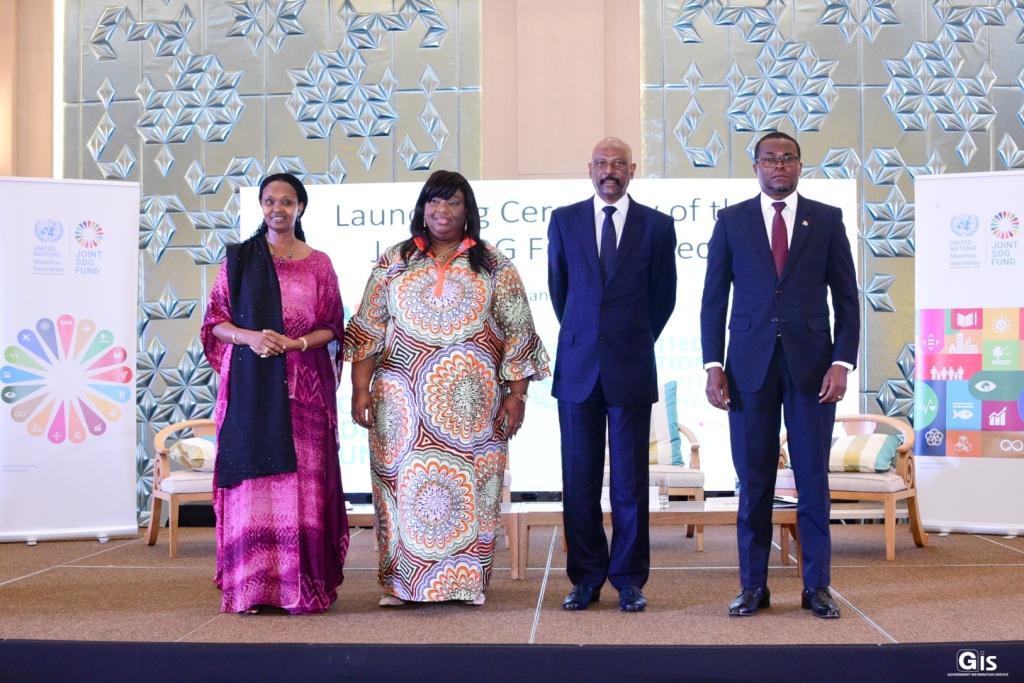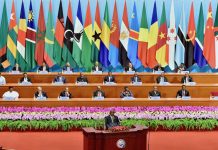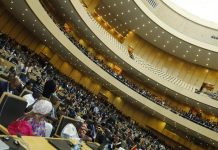Africa-Press – Mauritius. In April 2022, a two-year project entitled ‘Contributing to establishing an enabling environment to promote sustainable Green and Blue Economy in Mauritius and Seychelles’ was awarded by the United Nations (UN) Joint Sustainable Development Goal (SDG) Fund to advance both countries’ green and blue economy agenda.
As such, an official ceremony was organised, today, to launch the UN Joint SDG Fund Projects for Mauritius and Seychelles, at the InterContinental Resort in Balaclava. In Mauritius, the focus is on renewable energy while in Seychelles, emphasis is laid on solid waste management.
The Minister of Energy and Public Utilities, Mr Georges Pierre Lesjongard; the Minister for Agriculture, Climate Change and Energy of the Republic of Seychelles, Mr Flavien P.
Joubert; the Acting United Nations Environment Programme (UNEP) Deputy Executive Director, Ms Sonja Leighton-Kone; the UN Resident Coordinator for Mauritius and Seychelles, Ms Christine Umutoni; and other personalities were present during the ceremony.
In his address, Minister Lesjongard highlighted that through the Joint SDG Fund, Mauritius would benefit from around USD 700,000 to support the country’s efforts in increasing its share of renewable energy with a series of activities related to the development of ocean renewable energy.
He underlined that the Mauritian Government had proactively devised an energy plan with a new economic growth pole, the green energy industry. “The country,” he pointed out, “is on the right track to further accelerate the penetration of renewable energy in the electricity mix so as to meet the revised target of 60% renewable energy contribution in the energy mix by 2030.
Minister Lesjongard remarked that the ocean represented a huge potential for renewable energy power generation, particularly for Small Island Developing States.
He indicated that according to the renewable energy roadmap, ocean renewables were expected to contribute to the electricity mix as from 2026, in terms of 60mw from offshore wind and 25mw from marine sources such as wave and tidal energy.
“This contribution,” he added, “is expected to more than double by 2030 with a total contribution of 200mw installed capacity.
Moreover, Mr Lesjongard acknowledged that the assistance from the UN through this Joint SDG Project came at an opportune time to support the country in optimising on natural ocean resources and to attain ocean renewable energy targets as planned in the renewable energy roadmap for 2030.
For his part, the Seychelles Minister pointed out that the project would significantly contribute to his country’s blue economy endeavours. Mr Joubert further stated that the Fund would support the Seychelles Government to promote a circular economy in order to reduce the amount of waste flowing to the landfill along with a financing strategy, and strengthen the partnership between the public and private sectors. He also reassured that his country would provide its full support for the successful implementation of the project.
As for the UN Resident Coordinator, she observed that funds, to the tune of some USD 1.4 million for both countries, were mobilised by the UN Secretary-General’s Office and that projects would be implemented by several agencies, namely, UNEP, the United Nations Development Programme, the United Nations Economic Commission for Africa, the International Labour Organisation, the International Organisation for Migration, and the United Nations Fund for Population Agency.
Ms Umutoni also commended all partners who contributed to the Joint SDG Fund, which helped to bring about meaningful change in several countries. “The Joint SDG Fund will also address inequalities related to women, girls, and youth participation in the renewable energy sector,” she added.
The UNEP Deputy Executive Director, for her part, underlined that innovation and circular economies were among the main solutions to tackle the increase in waste generation, especially for Small Island Developing States like Mauritius and Seychelles.
Ms Leighton-Kone further stated that the projects being launched today would contribute to allow the two countries to achieve their respective climate targets through innovative solutions.
About the Joint SDG Fund The Joint SDG Fund is a multi-party trust fund aimed at getting the world back on track to achieve the SDGs. To date, it has funded some 200 joint programmes focused on integrated social protection or SDG finance.
It has also stimulated over 1,000 partnerships, while working together alongside the UN to support the SDGs and testing over 300 innovative solutions to accelerate the 2030 Agenda.
For More News And Analysis About Mauritius Follow Africa-Press







